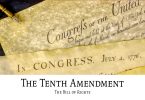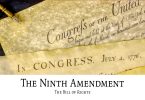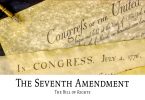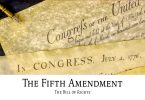The Sixth Amendment is another one about legal rights in a court of law. Because of the human rights abuses of courts in England at the time, the Bill of Rights was written, the Founding Fathers wanted to make sure that they did better for the people of their newly created nation. They wanted to learn from the mistakes of the crown of England, and give their people better. In large part, they succeeded in this quest. They made common sense natural rights the rule of law and provided the common man with far more legal protections than most other people had enjoyed in the history of the world to that point.
The Sixth Amendment
In all criminal prosecutions, the accused shall enjoy the right to a speedy and public trial, by an impartial jury of the State and district wherein the crime shall have been committed, which district shall have been previously ascertained by law, and to be informed of the nature and cause of the accusation; to be confronted with the witnesses against them; to have compulsory process for obtaining witnesses in his favor, and to have the Assistance of Counsel for his defense.
What Does it Mean?
The well-known right to a speedy trial is included in this amendment, as well as the provision that a trial be a public one. In England, and in the colonies under English rule, trials could often be drawn out for months or even years, while the accused was jailed the whole time waiting for the trial to be concluded. A lot of people in those days died in jail while waiting for their case to come to trial. Some trials were also held in secret, especially those involving crimes against the government, so the people could not be present and determine if the trial was conducted with a jury and if it was fair. This amendment eliminated those concerns and gave rights to the accused that were extraordinary and generous for the time.
The right to a trial by an impartial jury was also included here. England was notorious for conducting trials with juries that were already prejudiced against the accused, so there was never any chance they would have been found innocent, even if they were innocent. An impartial jury meant choosing juries from the populace, not from among the nobility or friends of the monarch or other authorities. Allowing the trial to be held where the crime was determined to have taken place was also a revolutionary decision because it meant the people who would most be affected by a crime in their area would be those from among whom the jury was chosen.
You also had to be informed as to why you were being arrested, and what the accusation against you was—again, something that didn’t always happen in England. Sometimes people were never told why they were being arrested. Being given an opportunity to meet and question witnesses against them, and to be guaranteed the right to find witnesses in their favor was also an unprecedented legal right for an accused person for the time.
Also, being granted the right to an attorney for their defense was also revolutionary. It meant that the government had to provide an attorney to any accused person, at government expense, if that person could not afford a private attorney on their own. The sixth amendment made the right to an attorney a fundamental human legal right. There are people in countries today who still do not have this right.




